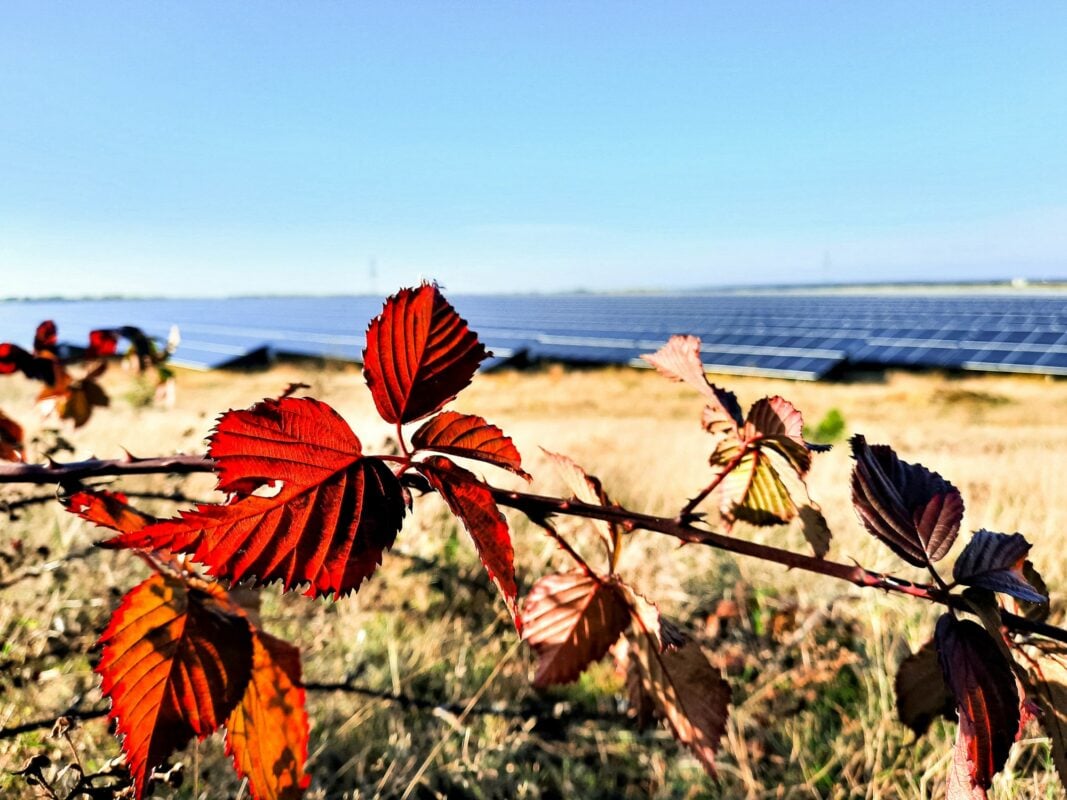
Statkraft saw three solar projects secure contracts in the RESS auction. Image: Statkraft.
Provisional results for the second auction in Ireland’s Renewable Electricity Support Scheme (RESS) have been published, showing that 1,534.1MW of solar PV was successful – equivalent to 78% of total capacity.
This is in comparison to 414.1MW of onshore wind that was successful in the auction, with the two combined totaling 1,948.2MW of successful bids.
Successful solar projects in RESS 2 include the 100MW Ballymoneen Solar Farm, which RES sold on to Power Capital Renewable Energy last year as part of a 240MW portfolio of Irish solar projects.
RES, meanwhile, confirmed to Solar Power Portal that it hadn’t bid any projects into the RESS auction.
Statkraft secured contracts for one wind project and three solar projects totalling 360MW in the RESS 2 auction. Together, the three solar projects total 322MW, and Statkraft is aiming to have them completed and operational by the end of 2024/early 2025. Solar Power Portal was told by JBM that the 100MW Clonfad asset that was successful in the scheme is now owned by Statkraft, having been initially developed by JBM.
It follows Statkraft securing the largest contract in the RESS 1 auction, with two solar farms totaling 276MWp as well as 57MW of onshore wind.
Donal O’Sullivan, head of development at Statkraft Ireland said: “This is a fantastic result for Statkraft but this auction was hugely challenging for the sector. Market volatility, grid uncertainties and planning delays drove up prices in RESS-2 but these factors can be addressed by looking at what kind of systemic changes can be put in place in the longer term.
“We want to work with the government and policy makers on the levers at their disposal to enable better pricing going forward, such as reform of planning timelines, inflation, and reducing grid costs and uncertainties.”
RESS 2 strike price
The weighted average strike price of the RESS 2 auction was €97.87/MWh (£83.08/MWh), which is higher than the strike price of 2020's RESS 1 auction, which at €74.08/MWh was significantly higher than anywhere else in Europe, according to the Irish Solar Energy Association (ISEA), and over double the prices seen in the UK’s Contracts for Difference (CfD) scheme, with the third round of the CfD seeing prices run as low as £39.65/MWh.
Commenting on today’s auction results, Irish Solar Energy Association CEO Conall Bolger said that while the contracts represent good value to customers as they are 56% cheaper than the average price for electricity, “we must also acknowledge that Irish society is paying more for renewable energy than should be the case.”
Bolger said that while some costs, such as the international prices of construction and supplying solar equipment, cannot be avoided, there are “significant elements within our domestic control which are being consistently ignored”.
“The costs associated with connecting to the national grid are way out of line with our closest neighbours and for no good reason. Lack of action to address this will drive up the price of every household’s electricity bills for the foreseeable future,” he said.
Bolger also pointed to the speed at which renewable projects are being connected, which he said in Ireland isn’t “anything approaching a reasonable timeframe”.
“The impact of every delay in a RESS project energising means an increase in construction costs and worse still a delay in the decarbonisation that the project will deliver,” he said.
The RESS auctions are designed to help the country meet its target of reaching 70% renewable energy by 2030, with the first auction accounting for approximately 10% of the capacity needed to meet this goal, with a minimum of four auctions to occur between 2020 and 2025.
Successful and unsuccessful applications
Overall, 153 projects applied to participate in the RESS 2 auction, with 130 qualifying – including 15 community projects. Of the remaining 23, only three didn’t qualify, with 20 projects formally withdrawing.
In total, 80 projects were provisionally successful, while 50 were unsuccessful. Of these successful projects, 66 were solar. However, 970.75MW of solar was unsuccessful as well as 29.05MW of onshore wind.
RESS 1, meanwhile, saw 796MW of solar secure contracts compared to 479MW of wind, smashing the expectations that solar would secure 100-300MW. A total of 114 wind and solar projects applied to participate in the qualification process, with 109 approved to participate. Of these, 82 were provisionally successful.
A full list of winning solar and wind projects can be found here.

